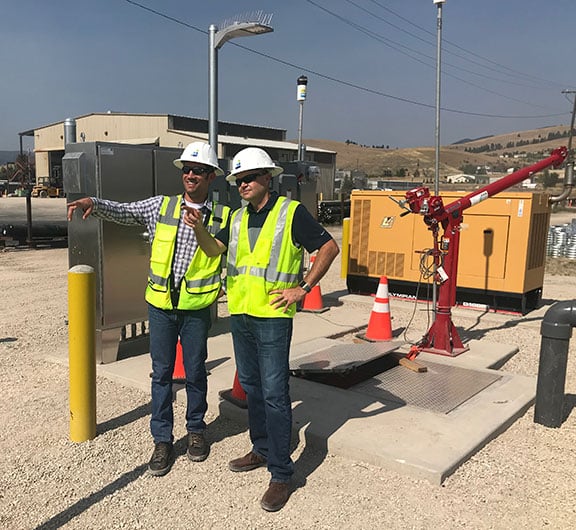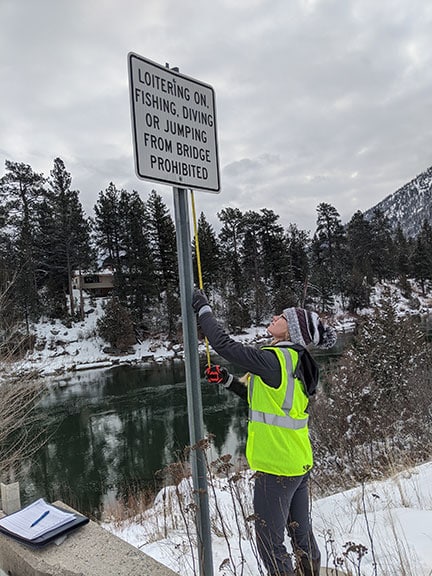
From Engineering School to an Engineering Firm
By Trystin Moran, Engineering Tech
After earning my degree in December of 2019, I jumped headfirst into my first full-time engineering position at Morrison-Maierle. This was a moment I had been working toward for years and I was so ready for this next chapter. However, finding myself in the real world after graduation was both exciting and daunting.
Transitioning from the college lifestyle to a full-time career doesn’t have to be stressful, but it will require effort. Here are four things I have found that make the transition from student to full-time employee-owner smoother—and, a little advice about how to keep the mindset of a lifelong student!
One: Develop a Professional Network
Networking is deliberately building and maintaining relationships with other people to further your professional goals. Establishing a professional network is one of the most important things you can do to grow personally and professionally while advancing your career.
Start with creating a LinkedIn profile. LinkedIn is a professional networking platform, designed to help make connections, share experiences and expertise, and find relevant job openings.
Join local clubs, community organizations, or sports teams. These groups allow for collaboration and provide the opportunity to build your professional skills including leadership, teamwork, communication, and time management.
Montana Young Professionals is an organization committed to providing professionals, between the ages of 21-39, with career development, networking, and community engagement opportunities? There are Young Professional groups in all six Morrison-Maierle Montana office locations.
Two: Seek out a Mentor
Before pursuing a mentor, it is beneficial to set or re-evaluate your goals and understand where you want your career to go. Having a clear idea of what you want your career to look like will make it easier to find the right person to help plan the steps to get there.

Morrison-Maierle recently established its very own Mentorship Program! This resource is intended to promote personal and professional development, and cross-departmental collaborations, and aid in the advancement of individual employee-owners and of the overall company long-term. It may be beneficial to have different mentors for the various stages of your career. Reach out to coworkers who are where you would like to be in 1, 5, and 10-years. Mentors can be found within the workplace, community organizations, previous professors, or even within your family.
Three: Time Management
Effectively managing your time is essential for job performance. The better you manage your time, the easier it is to achieve your goals. During college, we lived life in discrete sections: semesters, various classes spread throughout the day, winter and summer breaks, etc. In the workplace, your days will need to be more structured.

I do my best when focusing on one task at a time. Morrison-Maierle is a successful company and I often work on several projects each day from different market groups. Trying to manage several tasks at once can decrease productivity. Creating a list of what you need to do each day ranked by priority is an effective way to tackle your workload one task at a time without feeling overwhelmed.
Maintain organized notes and create a daily schedule. Consider buying a day planner to keep track of project deadlines, meetings, and day-to-day tasks.
I recognize that mornings are my most productive time of day and take advantage of this by dedicating this time to my top priorities.
Four: Never Stop Being a Student
Self-growth is essential for us to live fulfilling lives and have a successful career. I worked several summers as a wildland firefighter and there is a common saying in that profession, “be a student of fire.” I quickly learned there were two classes of firefighters: those that were continually trying to improve their understanding of the human and physical dimensions of wildland fire and those that focused on maximizing their paycheck. While self-growth and monetary reward are not mutually exclusive, the students of fire were some of my first professional role models and I will maintain that attitude for the rest of my career.
Beyond trying to achieve maximum potential, learning keeps you relevant in today’s rapidly evolving world. Take advantage of personal and professional development opportunities within your organization and community.
At my graduation, the dean argued I’ve merely been taught how to think like an engineer, now I’m striving to be an engineer. Your education doesn’t end when you receive that diploma—it is just getting started!